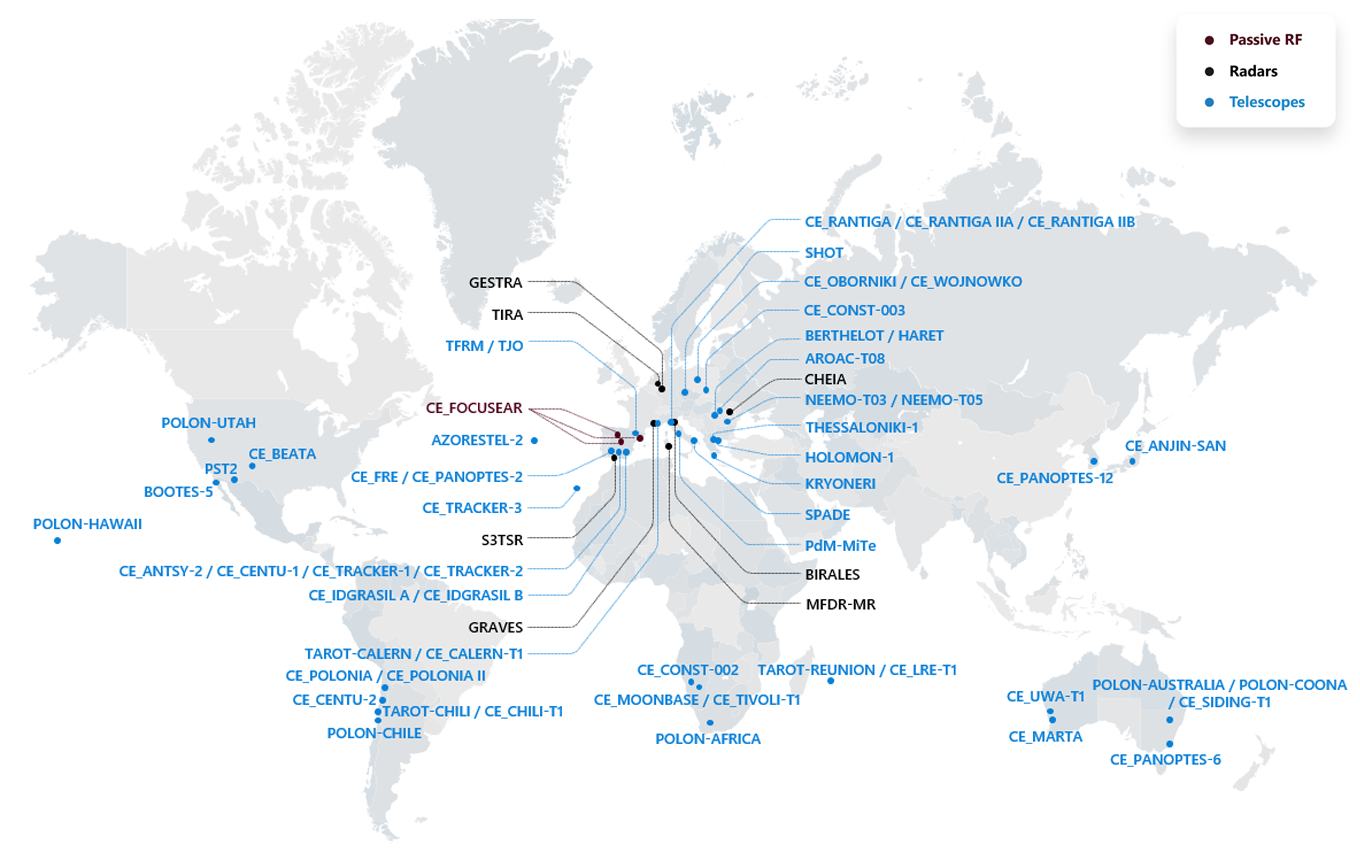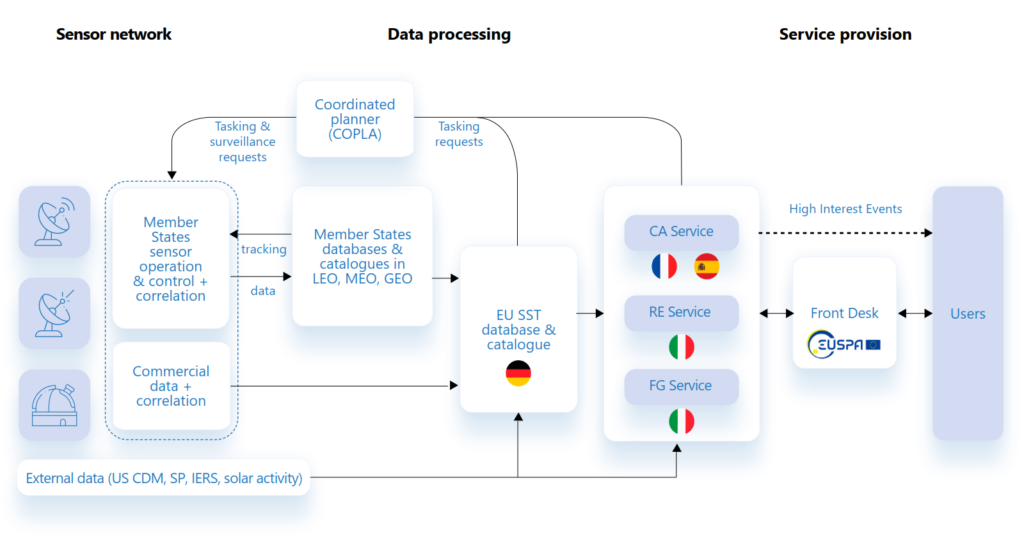The safety and security of European economies, societies and citizens rely on space-based applications such as communication, navigation and observation. However, due to the growing complexity of the orbital environment, space-based assets are increasingly at risk from collision with other operational spacecraft or debris. At the same time, objects may re-enter and cause damage on the ground. To mitigate these risks, we need to be able to survey and track such objects, and to provide this information to a variety of stakeholders.
Space Surveillance and Tracking (SST) is part of the Space Situational Awareness (SSA) component of the EU Space Programme, adopted by the European Union in 2021 with the Regulation (EU) 2021/696 of the European Parliament and of the Council. This Regulation foresaw the creation of an SST Partnership, which is composed, after the signature of the SST Partnership Agreement, of Constituting National Entities representing 15 EU Member States – Austria (FFG), Czech Republic (MDCR), Denmark (DALO), Finland (FMI), France (CNES), Germany (German Space Agency at DLR), Greece (NOA), Italy (ASI), Latvia (IZM), the Netherlands (EZ), Poland (POLSA), Portugal (PT MoD), Romania (ROSA), Spain (AEE) and Sweden (SNSA). The SST Partnership and the European Union Agency for the Space Programme (EUSPA) acting as the EU SST Front Desk work together to develop a European SST capability.
Previously, EU SST was established as a Support Framework by the SST Decision (2014), which foresaw the creation of an SST Consortium of EU Member States. The Consortium and the European Union Satellite Centre (SatCen) cooperated to gradually develop the SST capability with the support of the EU under different funding lines (i.e. H2020, Galileo & Copernicus programmes). EU SST is now funded by the EU through the EU Space Programme and the Horizon Europe programmes.
An SST system is a network of ground-based and space-based sensors capable of surveying and tracking space objects, together with processing capabilities aiming to provide data, information and services on space objects that orbit around the Earth. The SST Partnership’s Member States have networked their assets to provide, through the SST Service Provision Portal operated by EUSPA, a set of SST services to all EU Member States, EU institutions, spacecraft owners and operators, and other public and private entities. The SST services assess the risk of in-orbit collisions and uncontrolled re-entry of space debris into the Earth’s atmosphere, and detect and characterise in-orbit fragmentations.
The SST capability consists of three main functions: sensor, processing and service provision. Sensors contribute data that is analysed in the processing function and feeds a joint database and ultimately a catalogue; from this, products are derived for three services, generated by the Operations Centres (OCs) and delivered to users via the SST Service Provision Portal (SST Portal).
The Sensor function consists of a network of sensors to survey and track space objects in all orbital regimes (LEO, MEO, HEO and GEO).

EU SST Sensors Network (April 2025)
The Processing function aims to coordinate the data-sharing between the different OCs via a common database and to process thousands of daily measurements from the sensors contributing to EU SST. These data constitute the basis for a future EU SST Catalogue that will be used for the SST services. Germany is responsible for hosting the EU SST Database and generating the future EU SST Catalogue.
The Service Provision function is in charge of providing three SST services – Collision Avoidance (CA), Re-entry Analysis (RE) and Fragmentation Analysis (FG) – to entitled users through a secure portal, the SST Service Provision Portal, managed by EUSPA, which acts as Front Desk. More than 200 organisations are receiving these services and more than 500 satellites are safeguarded from the risk of collision. Currently, the French and Spanish OCs are responsible for the CA service, while the Italian OC is in charge of the RE and FG services.

EU SST Architecture
The three aforementioned functions and the SST services provided continue being developed with the support of the European Union towards an autonomous European capability able to safeguard the European economies, societies and citizens that rely on space-based applications such as communication, navigation and observation.
